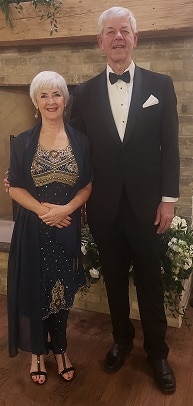By Steven Eagon, MA
I love watching all types of athletes when they are at the peak of their game. When younger and physically gifted, they typically succeed on sheer skill, speed, agility, strength, and brute force. But as athletes age, they become more cerebral with how they understand their chosen sport.
Beyond understanding the nuances of the game better, one of the key attributes that comes from experience is anticipation. Anticipating where a pass is going to go, what play is going to be called, and how a team plays defense are just some things that give athletes and their teams that extra edge for success.
Missed Opportunities in Hearing Care
When I coach sales skills, I always ask hearing professionals the question, “What are the reasons people choose not to buy hearing aids from you?” The answers are always the same. Price/cost, I need to do research, I need to talk to my spouse, I want to think about it, I had a bad experience before and don’t want to make another bad decision, etc. It doesn’t take long to work in this field before hearingthese comments on a fairly regular basis. So, if we have a strong idea what our patients are going to say, why aren’t we being proactive and “intercepting their pass”?
As hearing professionals, we have an opportunity to anticipate what our patients are going to do and say every day, but we rarely act on it.
It’s well documented that our patients, and consumers in general, are more informed today than ever. If they’re not on the Internet researching hearing aids, friends and family are doing it for them. Also, “research” doesn’t have to be online. Conducting research involves asking friends and family about hearing aid experiences and also striking up a conversation in the grocery store with a stranger to ask about their hearing aids.
Have you ever had a patient come to your office with a folder full of information they downloaded from the web? I thought so. As an aside, do you as a hearing professional know what search results show when you explore “hearing aid reviews” or “hearing aid costs”? If you don’t, you now have a homework assignment.
Being Proactive
Anticipating our patients’ behavior of being informed, how about if we as hearing professionals become proactive and ask a few direct questions during our interview process? Think of the information you can gather by asking questions such as:
- What do you know about hearing aids and hearing loss?
- What Internet research have you done on hearing aids and hearing loss?
- Do you have family or friends who have worn hearing aids? What did they say about them?
Once you begin to explore these general opening questions, it’s critical you explore further and layer your questions. What do I mean? Let’s assume your patient says, “Yes, I read some interesting articles about hearing aid technology and even found some user reviews. I was pretty surprised what I found.”
I’ve heard this type of reply countless times. Now what? Time to explore further:
- Tell me what you read?
- What were your thoughts about hearing aids after talking with your friend?
- What websites did you visit?
- What did you find that interested you?
- Did you find anything that raised some questions or concerns? (If ‘yes’) – Tell me what you read?
As you keep exploring, you will uncover patient statements for you to reassure, empathize, agree, and clarify.
Opportunities to Build Trust
Don’t miss these valuable opportunities to build trust with your patient. For example, when appropriate you can say, “You’re right, there is a lot of conflicting information on the Internet. While you’re working with me, I’ll answer all your questions and make sure you have accurate information about hearing loss. Don’t hesitate to stop me and ask questions, Mr. Patient.”
The notion of consumers being informed is only one area to anticipate and ask proactive questions. There are others.
If you anticipate what is on a patient’s mind, I encourage you to be proactive and ask questions early in your interview or intake discussion.
I had a student tell me several months ago that by “tackling issues head on,” she was able to spend more time discussing the benefits of hearing aids than frequently being in a reactive mode when a patient said something negative after the test.
So, do we know what our patients are thinking and feeling? In many cases, yes. So go ahead and anticipate and be proactive. I’m confident you’ll find these discussions with your patients quite helpful for both of you.
Steven Eagon, MA, is Unitron’s Director of In-clinic Success, a new role that underlines the company’s commitment to supporting hearing healthcare professionals. Prior to assuming this position at Unitron, Eagon was director of learning and development for Sonova Group, and Vice President of Professional Services for Sonova Group’s Connect Hearing. Steve also served as Vice President of Sales and Audiology for HearingPlanet, and for more than 10 years practiced as a clinical audiologist.
*featured image courtesy learntotradethemarket








